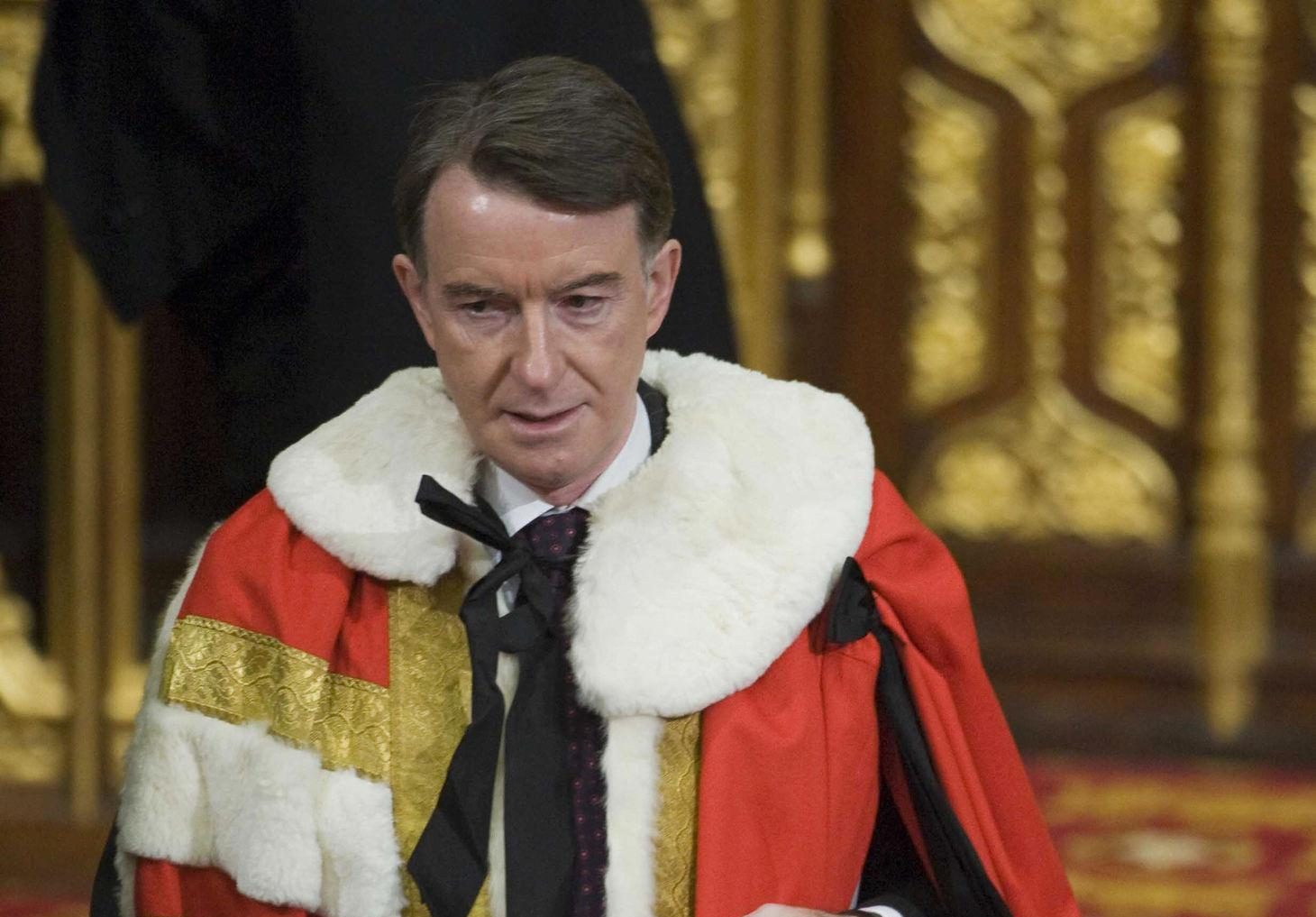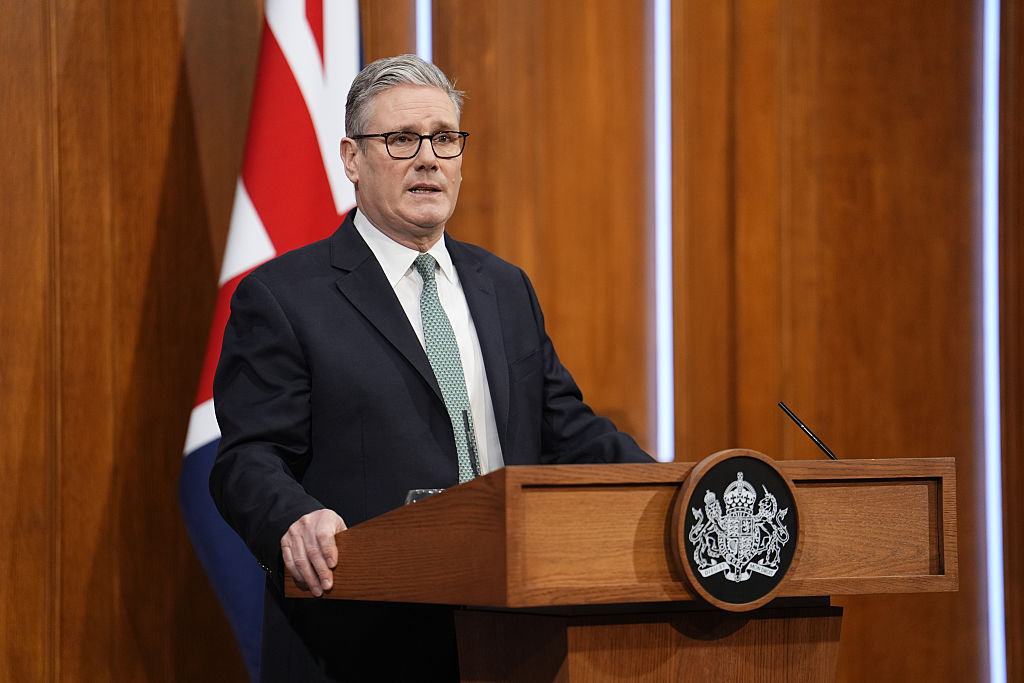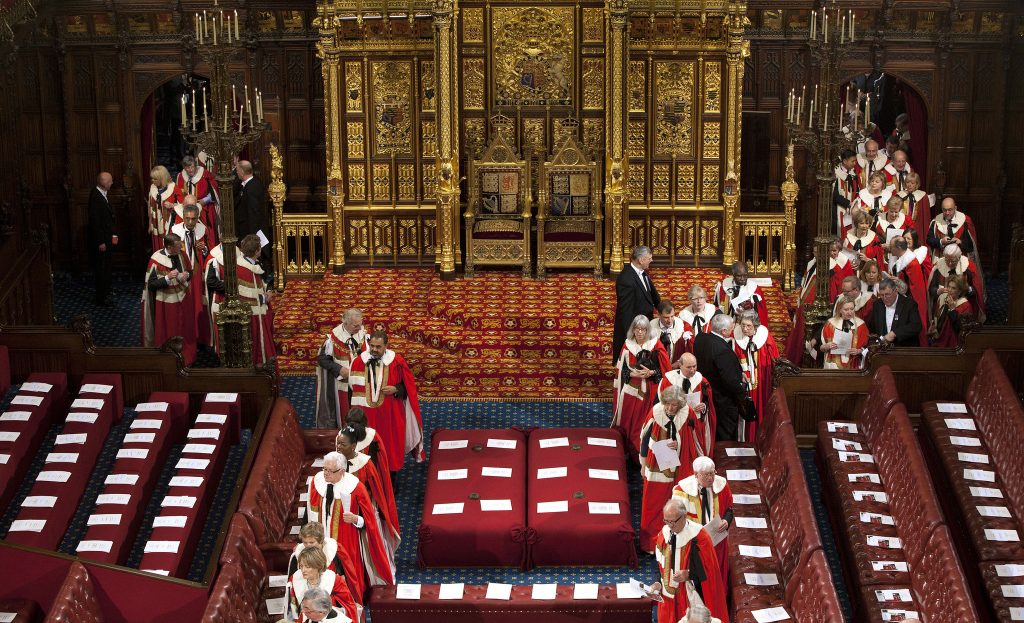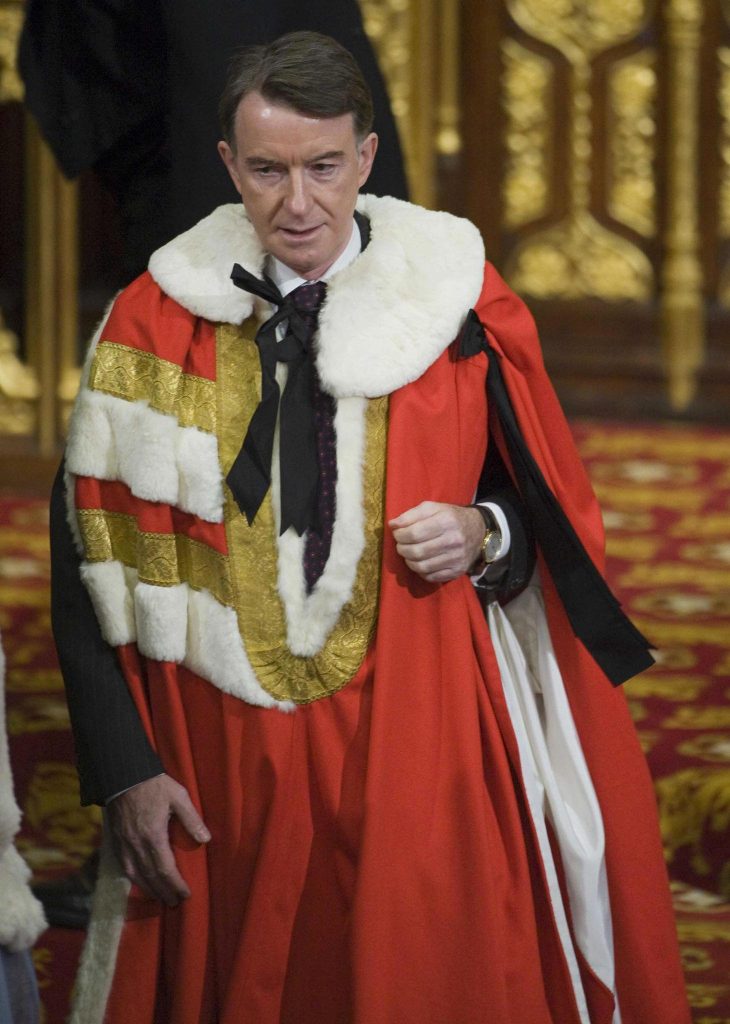Politics
Westminster power grab ‘an affront to devolution’

SENEDD Members criticised a “power grab” from Westminster, describing plans for UK ministers to make laws in areas already devolved to Wales as an “affront”.
The legislation committee raised concerns about the UK Government’s data use and access bill which would give UK ministers regulation-making powers in devolved areas.
Labour’s Alun Davies said the bill, which aims to make better use of data, would repeal regulations in Wales and impose English ones uniformly across both.
The former minister warned: “If UK ministers believe that they should have the right to take decisions and exercise regulation-making powers without the consent of Welsh ministers – that’s a very, very significant affront to the settlement.”
He explained the bill provides powers for UK ministers to act “only in consultation” with the Welsh Government, adding: “Consultation, as we know, means nothing in reality.”
Mr Davies said: “A bill like this tells you all you need to know about the inadequacies of the settlement but I’m genuinely bewildered by the Welsh Government’s approach.”

During a committee meeting on February 3, he suggested the Welsh Government was “piggybacking” on a UK bill and losing its powers as a consequence.
“That seems to me a real dereliction of responsibility,” he said.
Mr Davies asked: “Why on earth … what was the policy objective … that you’re just going to accept the imposition of this in some ways from the UK Government?”
Rebecca Evans, the Welsh Government’s economy secretary, responded: “These are the key issues we’re in discussion with the UK Government on now.”
Calling for the Welsh Government to legislate in its own right, Mr Davies said: “It just seems to me that we are creating another muddle on the border, another muddle of powers.”
Ms Evans, who came into post in September, replied: “I don’t sense that this is an area where something’s being done to us, it’s an area where we’re collaborating.”

Pointing to the Welsh Government’s “consent not consultation” principles on UK legislation in devolved areas, she told the committee most of the bill’s provisions are non-devolved.
Mr Davies, a backbencher since being sacked by Mark Drakeford in 2018, said: “We’ve got a new UK Government that made all sorts of assurances prior to the general election about extending the powers of the Senedd … devolving different matters … treating Wales fairly.
“We haven’t seen many of those delivered so far.”
The Plaid Cymru-turned-Labour politician contrasted this with powers being “taken away” from Wales to be exercised by the UK Government.
Warning Welsh ministers could be overruled on devolved matters under the bill, he said: “This scenario is not something I’m at all comfortable with. I wasn’t comfortable when the Conservatives were suggesting it, I’m not comfortable when Labour is suggesting it.”
Former Plaid Cymru leader Adam Price echoed his concerns, asking: “Are we on a slippery slope here, where England and Wales is once again coming through as a concept constitutionally to areas that we thought we had devolved long ago?”

He pressed the minister on whether she is in favour of the Senedd consenting to the bill, with Ms Evans saying she could not give a recommendation until talks with UK ministers end.
Seeming to prefer to seek compromise rather than set redlines, she described the issues as nuanced with a difference in view between the Welsh and UK Governments.
Labour’s Mike Hedges, who chairs the committee, asked why all the constitutional concerns have not been addressed since the change in UK Government more than six months ago.
Ms Evans said some of the concerns with the predecessor data protection and digital information bill have been addressed by the new UK Government.
But she told the committee: “It does remain the case that there are still some ongoing issues that we are in discussion with the UK Government on.”
Ms Evans added: “It’s not the subject matter that we have concerns about, it’s more about those ongoing discussions on constitutional points.”
Senedd Members will vote on the bill under the legislative consent motion, or LCM, process.
While the Sewel convention states the UK Parliament would “not normally” legislate on devolved matters without such consent, it is not legally binding.
Business
Bid to convert office space into chocolate factory, salon and laundrette

A CALL for the retrospective conversion of office space previously connected to a Pembrokeshire car hire business to a chocolate factory, a beauty salon and a laundrette has been submitted to county planners
In an application to Pembrokeshire County Council, Mr M Williams, through agent Preseli Planning Ltd, sought retrospective permission for the subdivision of an office on land off Scotchwell Cottage, Cartlett, Haverfordwest into three units forming a chocolate manufacturing, a beauty salon, and a launderette, along with associated works.
A supporting statement said planning history at the site saw a 2018 application for the refurbishment of an existing office building and a change of use from oil depot offices to a hire car office and car/van storage yard, approved back in 2019.
For the chocolate manufacturing by ‘Pembrokeshire Chocolate company,’ as part of the latest scheme it said: “The operation comprises of manufacturing of handmade bespoke flavoured chocolate bars. Historically there was an element of counter sales but this has now ceased. The business sales comprise of online orders and the delivery of produce to local stockist. There are no counter sales from the premises.”
It said the beauty salon “offers treatments, nail services and hairdressing,” operating “on an appointment only basis, with the hairdresser element also offering a mobile service”. It said the third unit of the building functions as a commercial laundrette and ironing services known as ‘West Coast Laundry,’ which “predominantly provides services to holiday cottages, hotels and care homes”.
The statement added: “Beyond the unchanged access the site has parking provision for at least 12 vehicles and a turning area. The building now forms three units which employ two persons per unit. The 12 parking spaces, therefore, provide sufficient provision for staff.
“In terms of visiting members of the public the beauty salon operates on an appointment only basis and based on its small scale can only accommodate two customers at any one time. Therefore, ample parking provision exists to visitors.
“With regard to the chocolate manufacturing and commercial laundrette service these enterprises do not attract visitors but do attract the dropping off laundry and delivery of associated inputs. Drop off and collections associated with the laundry services tend to fall in line with holiday accommodation changeover days, for example Tuesday drop off and collections on the Thursday.
“With regard to the chocolate manufacturing ingredients are delivered by couriers and movements associated with this is also estimated at 10 vehicular movements per week.”
The application will be considered by county planners at a later date.
Politics
Ceredigion council tax expected to rise by 4.7 per cent

A BETTER financial settlement for Ceredigion from the Welsh Government along with a fresh grant is expected to see council tax bills in the county rising by less than five per cent this year, far below previous fears of a rise as high as nearly nine.
Last year, for the 2025-’26 budget, Ceredigion saw a council tax rise of 9.3 per cent.
While council tax makes up a proportion of the council’s annual revenue, a crucial area of funding is the Aggregate External Finance (AEF) rate from Welsh Government.
Ceredigion was to receive a 2.3 per cent increase on its settlement, some £3,388,000 for a total of £150,670,000, placing it at joint 13th of the 22 local authorities in Wales.
Following a later Welsh Government and Plaid Cymru agreement additional funding for local government was secured, giving Ceredigion additional funding.
Back in November, before the increased settlement was announced, Ceredigion Leader Cllr Bryan Davies said that early estimates indicated that an 8.9 per cent increase in council tax would be necessary, but an improved position of 6.9 per cent had been indicated as a result of a further modelling of service cost pressures and operational savings.
Following the improved settlement, members at the January meeting of Cabinet heard from Cabinet Member for Finance and Procurement Services Cllr Gareth Davies a recommendation for a 4.75 per cent council tax increase as part of a draft budget requirement of £221.493m was being mooted.
That position has improved again, following financial support towards the Mid and West Wales Fire Service Levy, members of the February 3 meeting of the council’s corporate resources overview and scrutiny committee heard, the funding now dropping the expected council tax increase to 4.7 per cent, equivalent to an extra £7.39 per month for the average Band D property for the next financial year.
Members of the committee agreed to note the 4.7 per cent figure, with the final council tax recommendation being considered by Cabinet on February 10; the final decision on the budget being made by full council on March 2.
international news
Mandelson quits Lords amid police probe over Epstein links

Peter Mandelson has announced he will retire from the House of Lords with immediate effect, as mounting political and legal pressure grows over claims he shared sensitive government information with convicted sex offender Jeffrey Epstein.
Parliamentary officials confirmed that Peter Mandelson formally notified the Clerk of the Parliaments of his decision, ending his membership of the upper chamber from Tuesday (Feb 4).
The move follows reports that the Metropolitan Police Service is reviewing allegations of possible misconduct in public office connected to emails said to have been forwarded to Epstein while Mandelson was business secretary during the 2008–09 financial crisis.
Downing Street has confirmed that material has been passed to police after an initial Cabinet Office review.
Government fury

Prime Minister Keir Starmer told cabinet colleagues Mandelson had “let his country down”, according to No 10, and officials are now drafting legislation that could strip him of his peerage entirely.


Removing a life peer is rare and would require an Act of Parliament.
If passed, Mandelson would lose the title “Lord” altogether — an extraordinary step that has only been considered in the most serious cases.
Senior ministers have described the alleged passing-on of market-sensitive government discussions as “disgraceful” and a “betrayal of trust”.
What police are examining
Misconduct in public office is a centuries-old common law offence that applies where someone in a position of public trust wilfully abuses that role. It carries a maximum sentence of life imprisonment.
Investigators will assess whether confidential information — particularly relating to government financial policy during the crash — was shared without justification and whether safeguards were breached.
At this stage, no charges have been brought.
Mandelson has previously apologised for maintaining contact with Epstein after the financier’s conviction, saying he regrets “ever having known him”, but he has disputed some of the latest claims and has not commented directly on the police review.
Political shockwaves
Opposition parties are pushing for further disclosure of documents relating to Mandelson’s vetting and his past roles.
Conservatives are expected to force a Commons vote demanding more information, while Liberal Democrats have called for a public inquiry.
Several MPs have also suggested Mandelson should be removed from the Privy Council.
The developments mark a dramatic fall for one of Labour’s most influential political figures of the past three decades, who only months ago was serving as the UK’s ambassador to Washington.
Now, with police examining evidence and legislation being prepared to remove his title, his public career appears effectively over.
More updates are expected as the investigation continues.
-

 Health6 days ago
Health6 days agoConsultation reveals lack of public trust in health board
-

 News7 days ago
News7 days agoCaldey still unsafe, survivors warn — despite Abbey’s reform claims
-

 Community7 days ago
Community7 days agoPembrokeshire students speak at national Holocaust Memorial Day event
-

 News21 hours ago
News21 hours agoPrincess of Wales visits historic Pembrokeshire woollen mill
-

 News7 days ago
News7 days agoKurtz raises Gumfreston flooding in the Senedd as petition deadline nears
-

 Crime5 days ago
Crime5 days agoPembroke man accused of child sex offences sent to Swansea Crown Court
-

 Education7 days ago
Education7 days ago‘Vulnerable teen’ questioned by police at Milford Haven School
-

 Education7 days ago
Education7 days agoAttendance concerns at Milford School reflect wider issue raised at the Senedd




























